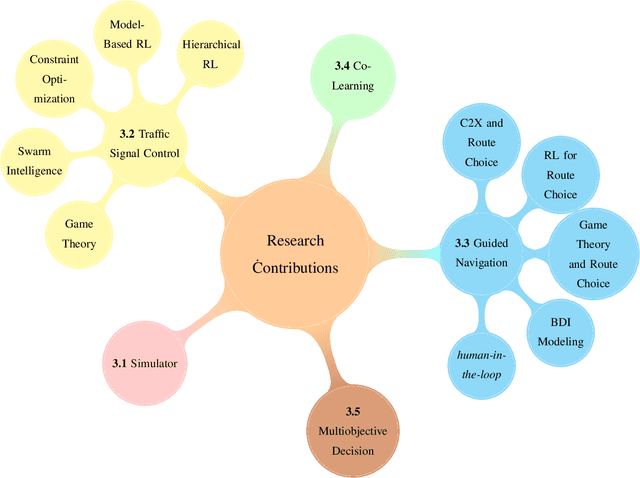Improving Urban Mobility: using artificial intelligence and new technologies to connect supply and demand
Paper and Code
Mar 18, 2022


As the demand for mobility in our society seems to increase, the various issues centered on urban mobility are among those that worry most city inhabitants in this planet. For instance, how to go from A to B in an efficient (but also less stressful) way? These questions and concerns have not changed even during the covid-19 pandemic; on the contrary, as the current stand, people who are avoiding public transportation are only contributing to an increase in the vehicular traffic. The are of intelligent transportation systems (ITS) aims at investigating how to employ information and communication technologies to problems related to transportation. This may mean monitoring and managing the infrastructure (e.g., traffic roads, traffic signals, etc.). However, currently, ITS is also targeting the management of demand. In this panorama, artificial intelligence plays an important role, especially with the advances in machine learning that translates in the use of computational vision, connected and autonomous vehicles, agent-based simulation, among others. In the present work, a survey of several works developed by our group are discussed in a holistic perspective, i.e., they cover not only the supply side (as commonly found in ITS works), but also the demand side, and, in an novel perspective, the integration of both.
 Add to Chrome
Add to Chrome Add to Firefox
Add to Firefox Add to Edge
Add to Edge